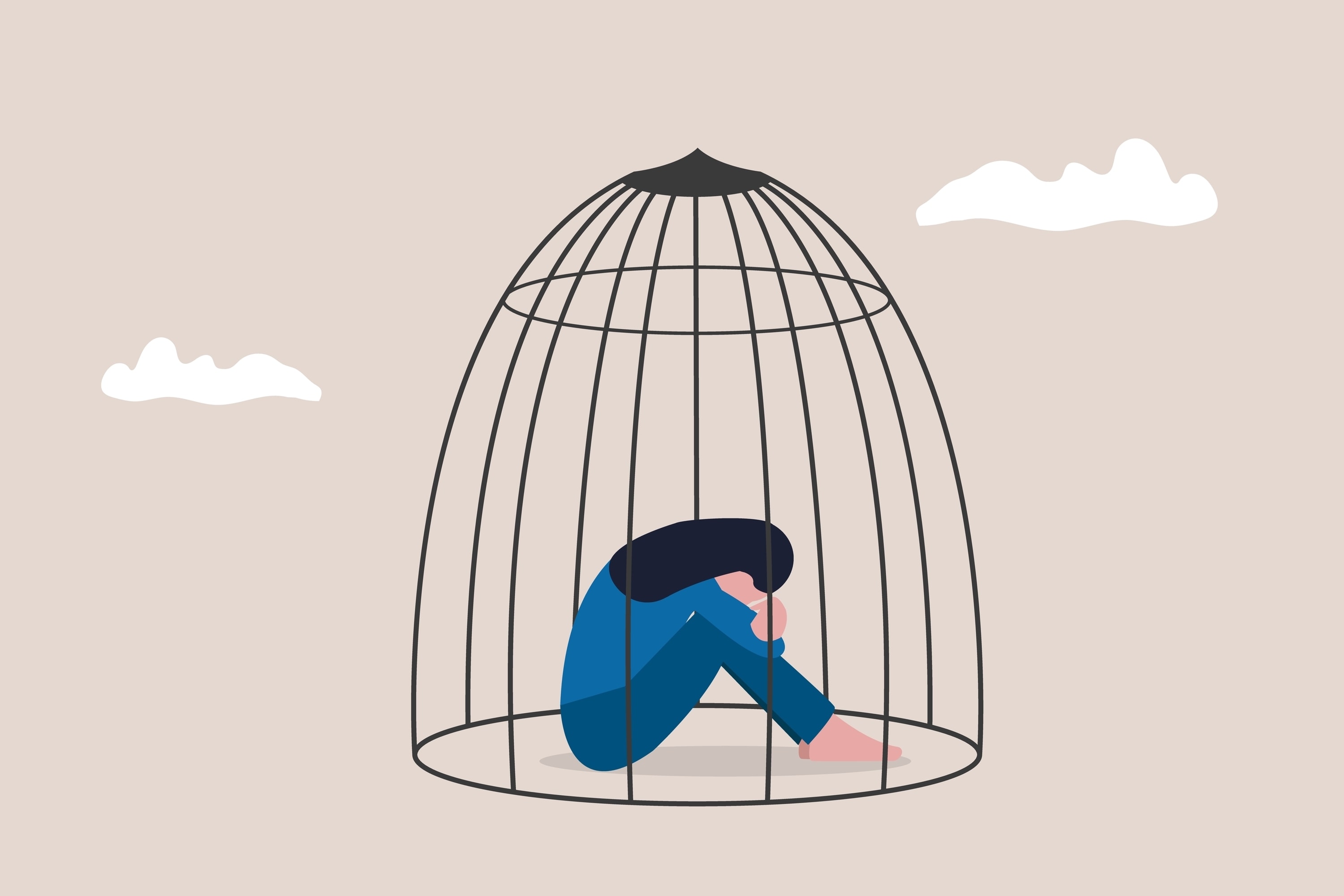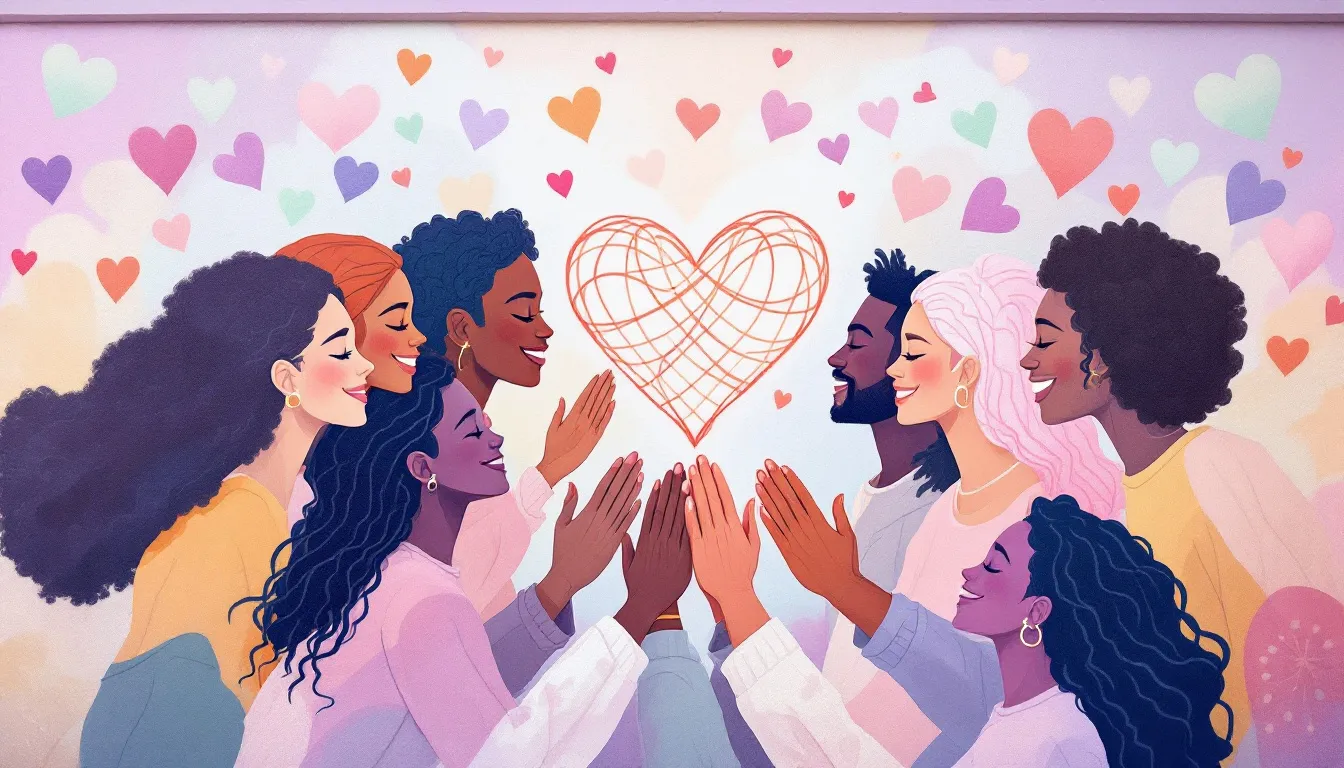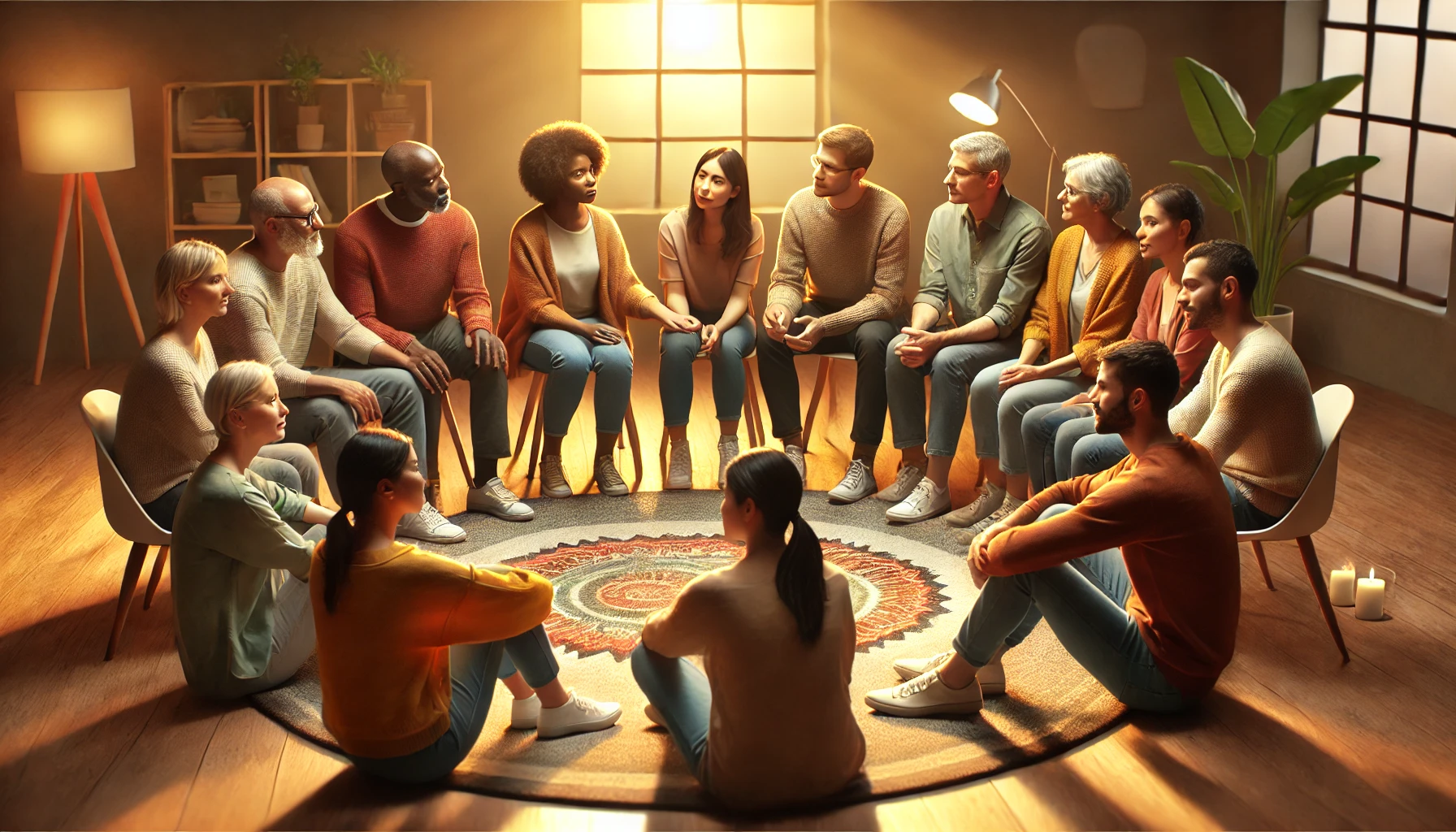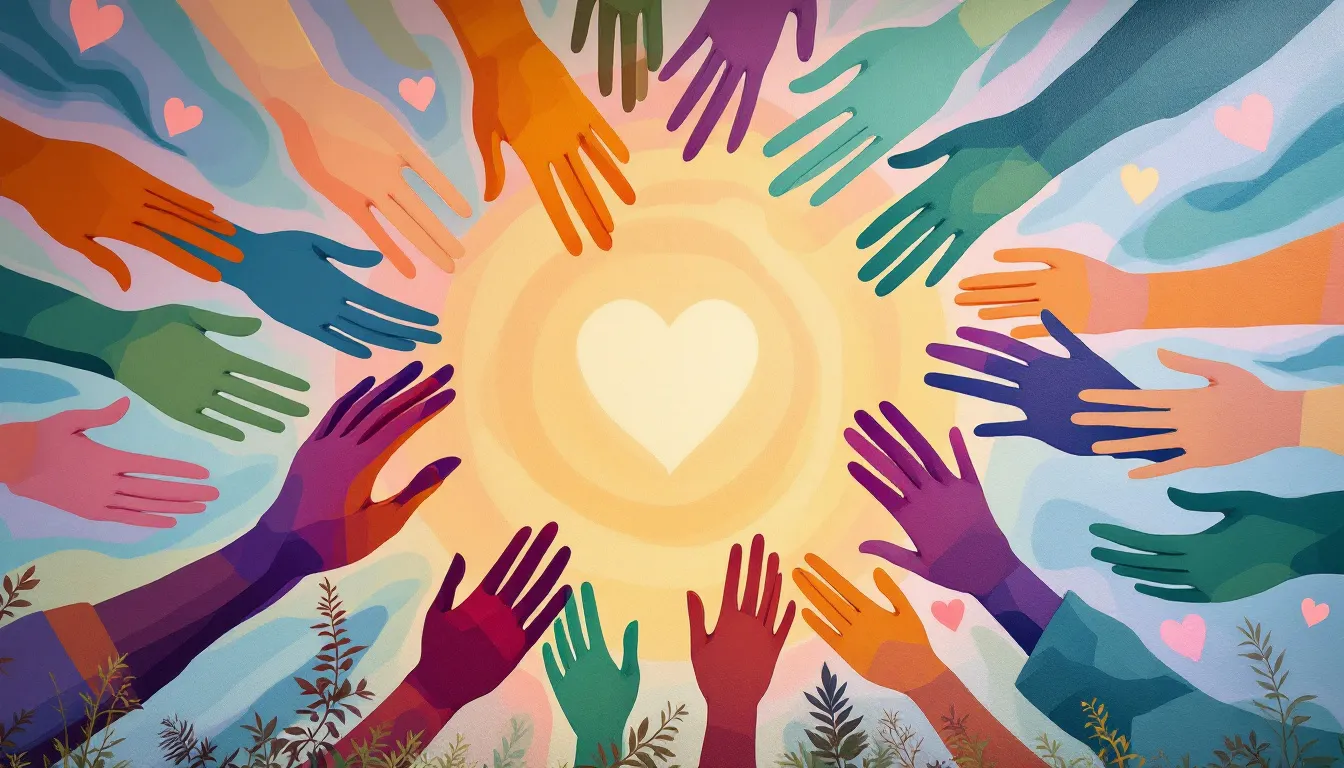Are you feeling isolated and overwhelmed from dealing with a narcissist’s abuse? A narcissist abuse support group can provide the understanding and community you need. In this article, we’ll explore what narcissistic abuse is, the benefits of joining a support group, and how to find one that fits your needs.
Understanding Narcissistic Abuse
Narcissistic abuse is an insidious form of emotional and psychological abuse inflicted by individuals with narcissistic traits or a narcissistic personality disorder. The abuser often employs tactics such as gaslighting—making the victim doubt their own reality—love-bombing, and emotional blackmail to exert control. The manipulative nature of this abuse can leave victims feeling isolated, anxious, and constantly on edge as their emotional vulnerabilities are exploited.
The cycle of narcissistic abuse typically follows a predictable pattern:
-
Idealization: During this phase, the abuser showers the victim with affection and admiration.
-
Devaluation: This is followed by the devaluation stage, where the abuser becomes critical, belittling, and hostile.
-
Discarding: Finally, in the discarding phase, the abuser often abruptly ends the relationship, leaving the victim devastated and questioning their self-worth.
This cycle can repeat multiple times, trapping victims in a relentless loop of emotional turmoil.
Recognizing the signs of narcissistic abuse is essential; these often include complete isolation from friends and family, constant blame-shifting, and an environment of perpetual uncertainty. Understanding these patterns is the first step towards breaking free and seeking the help necessary for recovery.
The Importance of Support Groups
Survivors of narcissistic abuse often face significant emotional distress that impacts various aspects of their lives, from personal relationships to professional endeavors. This is where narcissistic abuse support groups come into play. These groups provide a safe space for individuals to share their experiences, gain emotional support, and learn from others who have faced similar challenges.
Participating in a support group can significantly aid in the recovery process. Connecting with others who understand the pain and confusion brought on by narcissistic abuse helps survivors find comfort and reassurance. The collective healing that occurs in these groups fosters a renewed sense of confidence and empowerment, helping individuals rebuild their lives and regain control.
Types of Narcissistic Abuse Support Groups
Support groups for narcissistic abuse survivors come in various forms, each offering unique benefits. Whether you prefer the face-to-face interaction of in-person groups, the flexibility of online groups, or the structured guidance of professional-led sessions, there’s a support group to meet your needs.
The right support group can be a crucial part of your healing journey, providing the community and resources necessary to heal and supported.
In-Person Support Groups for Narcissistic Abuse Recovery
In-person support groups offer the invaluable benefit of face-to-face interaction, creating a judgment-free environment where survivors can share their experiences and feelings openly. This sense of community fosters belonging, especially for those who have felt isolated due to their experiences with narcissistic abuse. Participants can learn about the effects of narcissistic abuse within a supportive community, enhancing their understanding and aiding in their recovery.
Active listening and empathy, pivotal in the healing process, are typically encouraged in these groups. Additionally, access to professional guidance within these groups can provide crucial legal and psychological advice, helping survivors navigate the complexities of their situations.
Online Support Groups for Survivors of Narcissistic Abuse
Online support groups for narcissistic abuse offer a convenient and accessible way for individuals to seek help and connect with others, regardless of their location. These groups provide greater flexibility in participation, allowing survivors to join sessions from the comfort of their homes and at times that suit their schedules. This flexibility can be especially beneficial for those who may have difficulty attending in-person meetings due to logistical or emotional barriers.
Moreover, online communities extend support beyond traditional therapy, helping survivors connect with resources and peers for additional encouragement and emotional support. The broader network available online can provide diverse perspectives and tools for managing the long-term effects of narcissistic abuse.
Professional-Led vs. Peer-Led Groups
Support groups can be either professional-led or peer-led, each offering distinct advantages. Professional-led groups are often guided by licensed psychotherapists who bring clinical expertise and structured sessions to the table. These groups can provide a more formal therapeutic environment, which may be beneficial for individuals seeking structured support and professional advice.
On the other hand, peer-led groups offer the relatability and shared experiences that can make participants feel more understood and less alone. These groups are typically characterized by rotating leadership among members, fostering a sense of community and mutual support.
Choosing between professional-led and peer-led groups ultimately depends on individual needs and preferences.
How to Find the Right Support Group
Finding the right narcissistic abuse support group can significantly impact your recovery journey. There are multiple methods available, including consulting mental health providers, exploring community and domestic violence centers, and utilizing online directories and platforms.
Each method offers unique benefits and can help you find a group that meets your specific needs.
Consulting Mental Health Providers
Therapists can often recommend support groups that are tailored to address narcissistic abuse recovery. These personalized recommendations can enhance the effectiveness of support group participation, ensuring you find a group that aligns with your specific needs and circumstances.
Consulting mental health providers is an essential step when seeking support for narcissistic abuse recovery. Reaching out to a therapist can be the first step towards finding suitable support groups and beginning your healing process.
Community and Domestic Violence Centers
Domestic violence organizations play a pivotal role in offering emotional and practical support for individuals affected by violence. Many of these organizations have specialized support groups aimed at those recovering from intimate partner violence, making them a valuable resource for survivors of narcissistic abuse.
Start by searching local resources such as community centers, libraries, and mental health clinics for available listings to find a suitable support group. These local resources can provide a wealth of information and connect you with support groups that are accessible and relevant to your needs.
Online Directories and Platforms
Websites dedicated to mental health advocacy often list various support group options focused on narcissistic abuse. Online directories and platforms offer accessible and extensive information for those seeking narcissistic abuse support groups.
To start the process of joining a support group, individuals should research local options, inquire at mental health clinics, and check online directories that specialize in listing such groups. This comprehensive approach can help you find the most suitable support group for your recovery journey.
What to Expect in a Narcissistic Abuse Support Group
Support groups provide a safe space for survivors to support each other during the healing process. Participants are encouraged to share their personal experiences, helping them explore the impact of narcissistic abuse and find solace in knowing they are not alone. Active listening is a critical aspect of participation, allowing members to understand each other’s experiences without judgment.
Support groups help members learn coping strategies from one another, which can be therapeutic in recovery. Developing coping mechanisms, grounding techniques, and setting personal boundaries are often the focus of sessions. Respecting the privacy of group members by maintaining confidentiality is crucial for fostering trust within the group dynamic.
Exploring self-care practices helps reinforce emotional well-being among group members. Engaging in these discussions can be taxing, so it’s important to take care of yourself emotionally throughout the process.
Joining and Participating in Support Groups
Joining a narcissistic abuse support group provides a safe space for survivors to share their experiences and feelings, which is essential for emotional healing. To join a support group, individuals can consult mental health providers for recommendations or search through community and domestic violence centers.
Active participation in sessions means sharing personal experiences and insights, and being open to listen and support fellow group members.
Initial Steps to Join
Reflecting on personal experiences and deciding what type of support is needed is beneficial before joining a support group. Researching and choosing a support group that aligns with individual needs, whether they are peer-led or professional-led, is crucial.
Attending the first meeting may cause anxiety, but engaging at your own comfort level helps assess if the group is a good fit. This initial step can help you determine whether the group’s dynamics and focus align with your recovery goals.
Engaging in Sessions
Before joining, reach out to the group leader to ask about group dynamics, confidentiality, and member expectations. Understanding these aspects can help you feel more comfortable and prepared for your first session.
Active participation in sessions can enhance personal healing, allowing individuals to share their stories and gain insights from others. Sharing experiences when comfortable, listening empathetically to others, and contributing to discussions can enhance the collective support experience.
Types of Therapy for Narcissistic Abuse
Recovering from narcissistic abuse requires a structured and evidence-based approach to healing. At the Bay Area CBT Center, we specialize in helping individuals overcome the devastating effects of toxic relationships by offering science-backed therapies designed to empower survivors and provide the tools necessary for long-term healing. Our comprehensive approach addresses the deep emotional pain caused by narcissism and provides a path toward healthy relationships built on trust, self-worth, and resilience.
Therapeutic Approaches for Narcissistic Abuse
We offer a range of therapies tailored to meet the unique needs of survivors. Our holistic approach integrates multiple evidence-based modalities, ensuring that every individual receives the support they need to reclaim their self and regain control of their healing journey.
-
Cognitive Behavioral Therapy (CBT): CBT therapy is a structured approach that helps survivors recognize unhealthy thought patterns, reframe negative beliefs, and develop tools to manage emotions and behaviors effectively.
-
Schema Therapy: Schema therapists focuses on identifying deep-seated patterns and core wounds that contribute to repeated toxic relationships, allowing individuals to break free from destructive cycles.
-
Attachment-Based Therapy: Designed to repair relational wounds and build secure connections, this therapy is especially beneficial for those struggling with the long-term effects of narcissistic abuse.
-
Somatic Therapy: Since trauma is stored in the body, somatic therapy helps survivors process emotions through movement, breathwork, and body awareness, facilitating deep healing.
-
EMDR Therapy: Eye Movement Desensitization and Reprocessing (EMDR) is an effective approach for processing trauma, reducing distressing emotions, and allowing survivors to move forward with clarity.
At the Bay Area CBT Center, we understand that the healing journey from narcissism-related trauma is complex. That’s why we offer therapy for narcissistic abuse in San Francisco, Los Angeles, and San Diego, as well as online therapy and support groups to reach individuals across California.
Bay Area CBT Center Online Narcissist Abuse Support Group
Healing from the pain of narcissistic abuse doesn’t have to be a solitary experience. Our Online Narcissistic Abuse Support Group provides a safe space for survivors to connect, share experiences, and receive expert guidance on how to overcome the effects of emotional manipulation. Led by licensed therapists, these groups help participants develop empowerment, establish boundaries, and build a fulfilling life beyond toxic relationships.
No matter where you are in your healing journey, our tailored approach ensures that you receive the right form of therapy to address trauma and regain control of your life. Through therapy, you can reclaim your self, process your emotions, and break free from the behaviors that keep you stuck. Because your healing matters.
Resources for Narcissistic Abuse Survivors
Survivors of narcissistic abuse can benefit from several tools and resources outside of support group sessions. Books on narcissistic abuse recovery offer both classic and new perspectives, providing valuable insights and strategies for healing. Additionally, the U.S. National Domestic Violence Hotline can be reached at 1-800-799-7233 for support.
Crisis Text Numbers, such as #741741 in the U.S., offer immediate support for those in need. These resources can be crucial in moments of crisis and provide additional layers of support for survivors.
Summary
In summary, narcissistic abuse support groups play a vital role in the recovery journey. Whether in-person or online, professional-led or peer-led, these groups provide the empathy, understanding, and collective healing necessary for survivors to rebuild their lives. By taking the initial steps to join and actively participating in sessions, survivors can find the support they need to overcome the devastating effects of narcissistic abuse. Remember, you are not alone, and there is help available.
Wondering if complex trauma is impacting your daily life and what to do about it? Take our childhood trauma test to find out. Want to apply to join our waitlist for our support groups? Apply here to join our support group waitlist.
























































